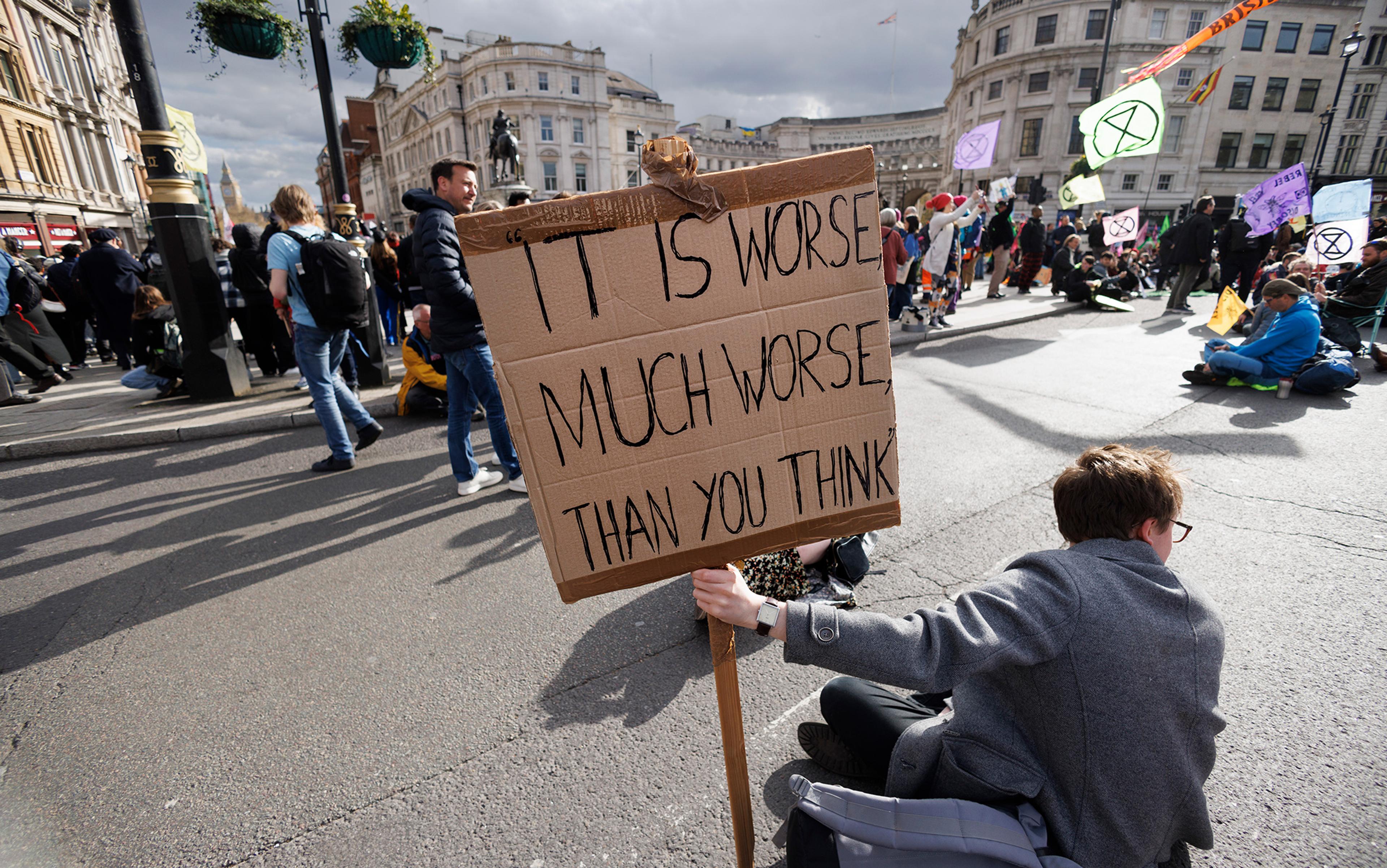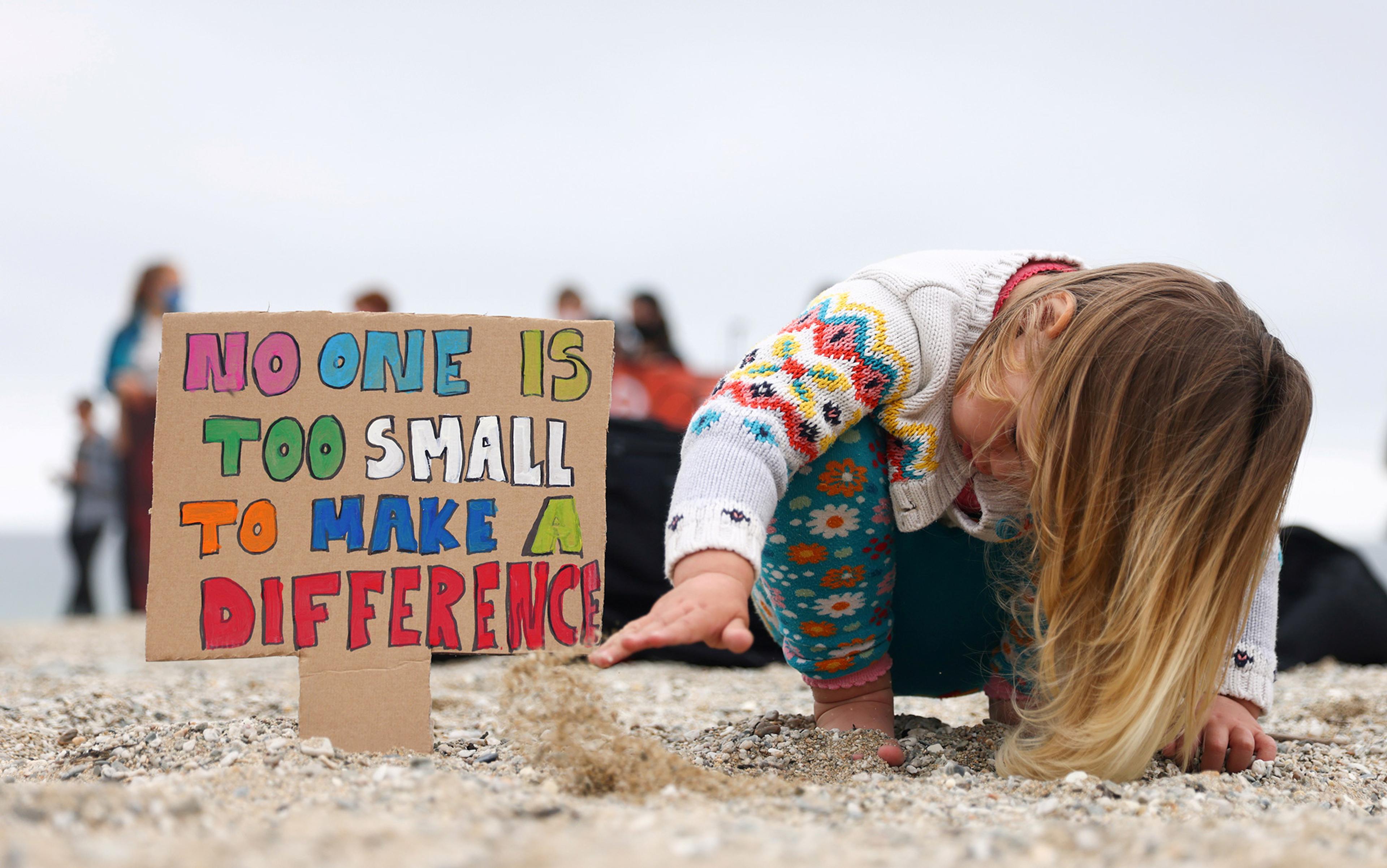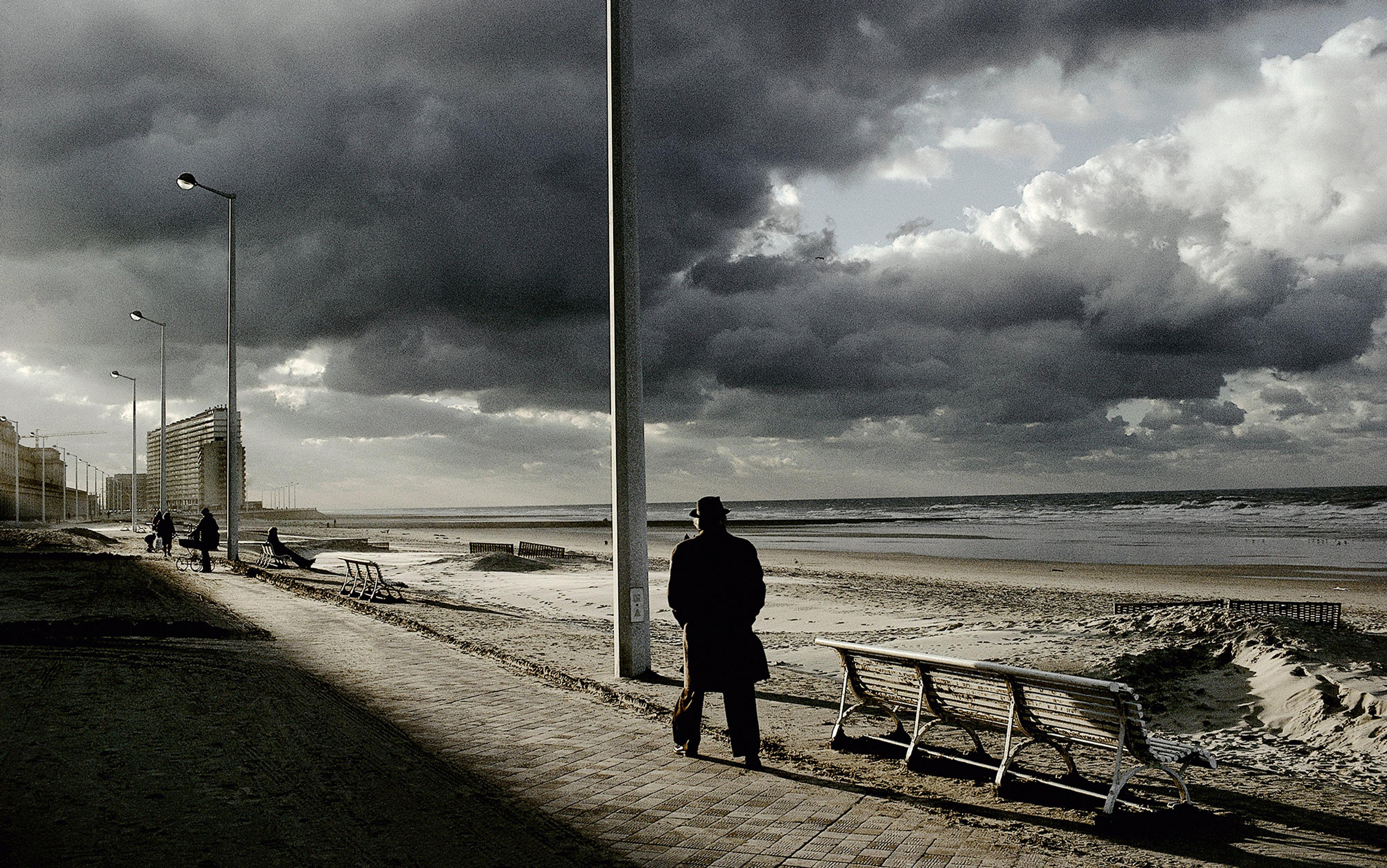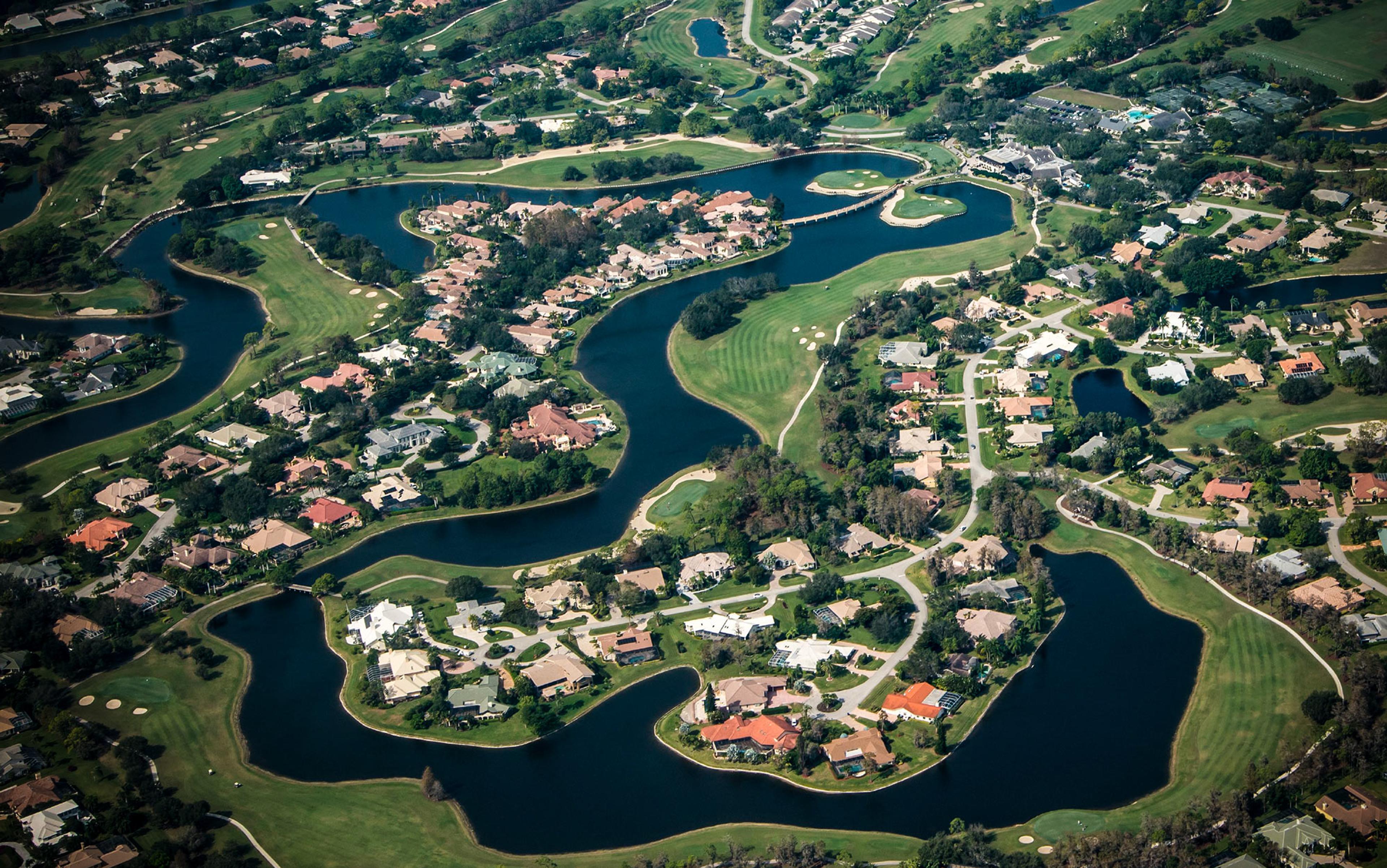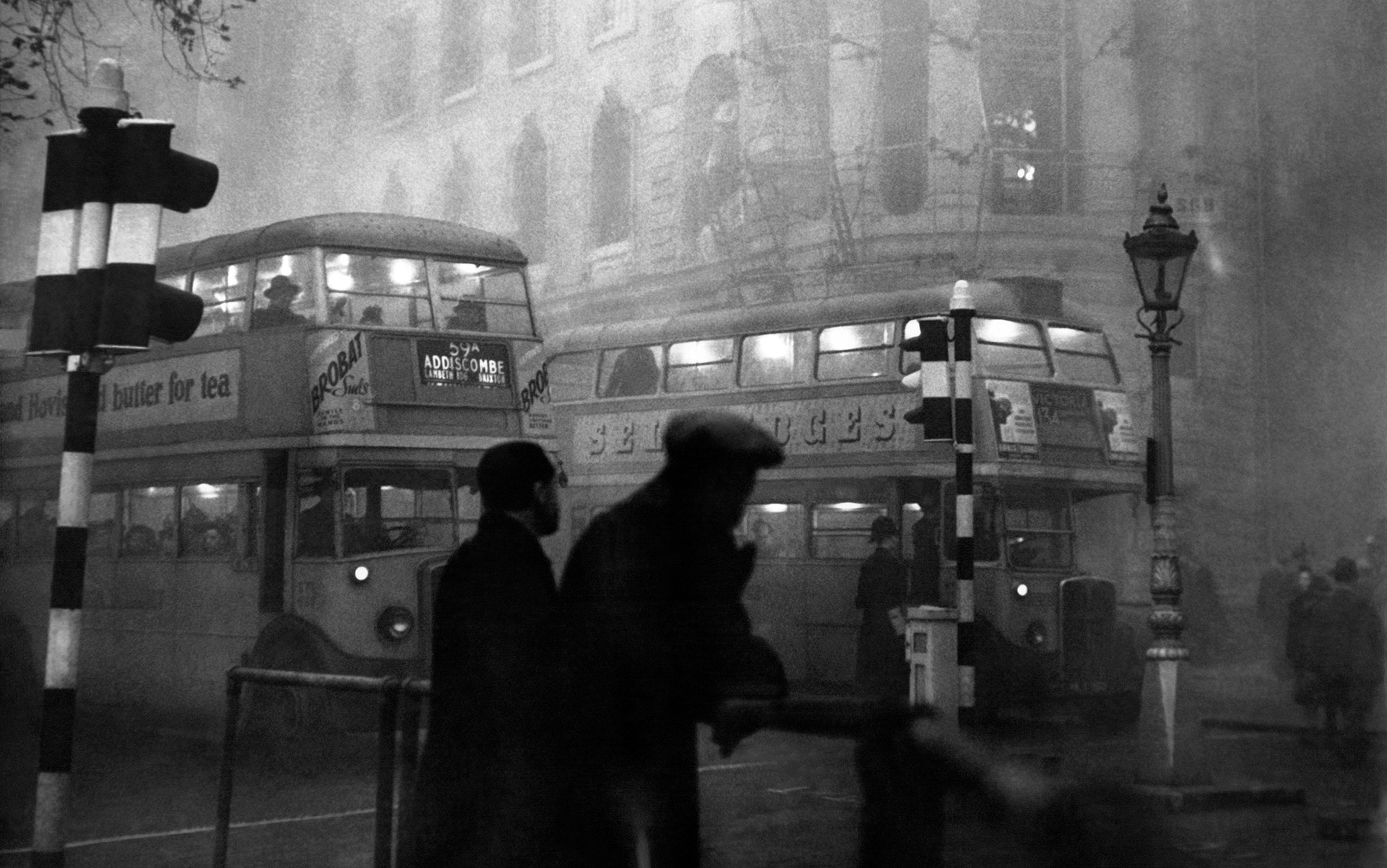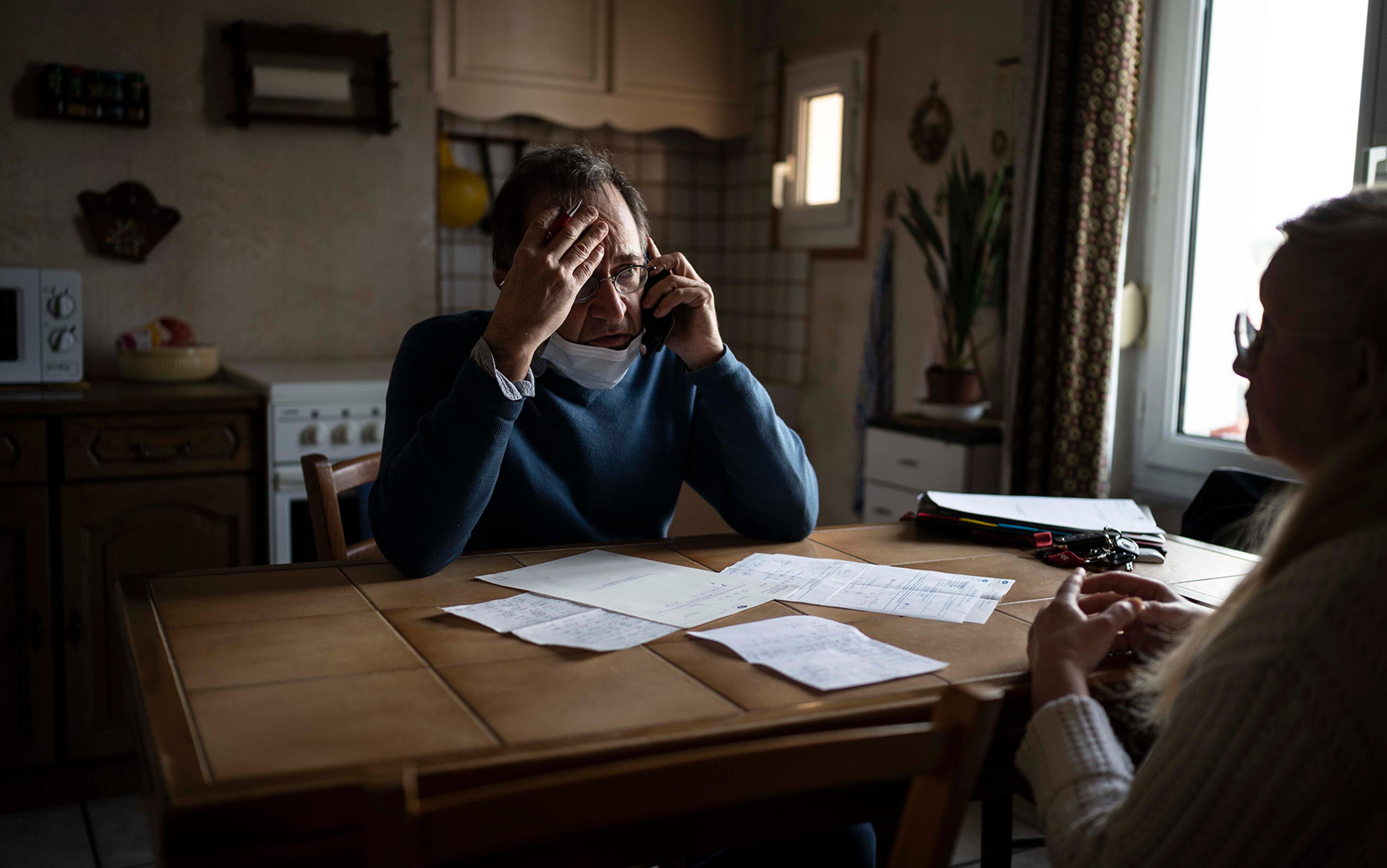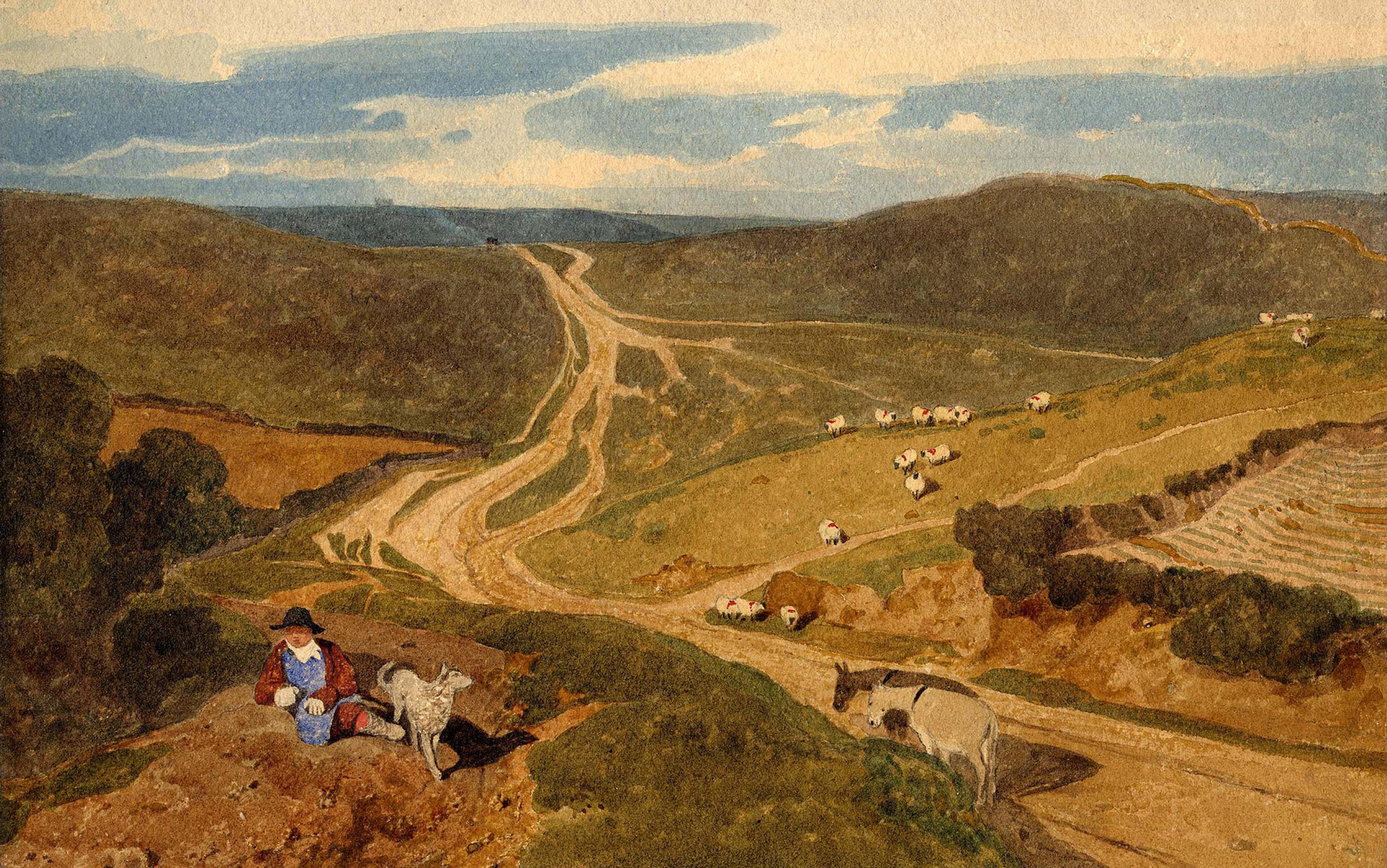In the 17th and 18th centuries, a group of Western philosophers came to clashes, on the page at least, over the age-old problem of evil: the question of how a good God could allow the existence of evil and suffering in the world. Philosophers such as Pierre Bayle, Nicolas Malebranche and G W Leibniz, later followed by such pillars of the canon as Voltaire, David Hume and Immanuel Kant, vehemently disagreed not only on how the problem could be solved – if it could be solved at all – but also on how to speak of such dark matters.
Some of these arguments of ‘theodicy’ (the attempt to justify creation) may seem antiquarian to modern eyes – but in an age where young people question the morality of bringing new children into the world, they are surprisingly relevant. After all, the issue is not just about God: it is about creation and, more specifically, the extent to which creation can be justified, given the ills or ‘evils’ that are in the world.
The question of creation is urgent for us today. Considering the great uncertainties of the climate crisis, is it justified to create new people, not knowing what kind of future lies ahead of them? And if it is justified, is there any point at which it ceases to be? Most people would probably agree that some worlds are imaginable in which creation would be immoral. At what precise point is life too bad, or too uncertain, to pass on?
In the early Enlightenment, of course, there were no such concerns for the future of the planet. But there were evils in existence – plenty of them. Crimes, misfortunes, death, disease, earthquakes and the sheer vicissitudes of life. Considering such evils, these philosophers asked, can existence still be justified?
This longstanding philosophical debate is where we get the terms ‘optimism’ and ‘pessimism’, which are so much used, and perhaps overused, in our modern culture. ‘Optimism’ was the phrase coined by the Jesuits for philosophers such as Leibniz, with his notion that we live in ‘the best of all possible worlds’ (for surely, if God could have created a better one, he would have done so). ‘Pessimism’ followed not long afterwards to denote philosophers such as Voltaire, whose novel Candide (1759) ridiculed Leibnizian optimism by contrasting it with the many evils in the world. ‘If this is the best of all possible worlds,’ Voltaire’s hero asks, ‘what on earth are the others like?’
But really, Voltaire wasn’t much of a pessimist: other philosophers such as Bayle and Hume went much further in their demonstrations of the badness of existence. For Bayle, and for Hume after him, the point is not just that the evils of life outnumber the goods (though they believe this is also the case), but that they outweigh them. A life might consist of an equal number of good moments and bad moments: the problem is that the bad moments tend to have an intensity that upsets the scales. A small period of badness, says Bayle, has the power to ruin a large amount of good, just like a small portion of seawater can salt a barrel of fresh water. Similarly, one hour of deep sorrow contains more evil than there is good in six or seven pleasant days.
Against that bleak vision, thinkers such as Leibniz and Jean-Jacques Rousseau emphasised the goods of life, and the power we have to seek out the good in all things, for if we learned to adjust our vision we would see that life is in fact very good: that ‘there is incomparably more good than evil in the life of men, as there are incomparably more houses than prisons,’ Leibniz writes, and that the world ‘will serve us if we use it for our service; we shall be happy in it if we wish to be.’ Just as the pessimists believed the optimists were deceived in their insistence on the goods of life, so too the optimists thought the pessimists’ eyes were skewed towards the bad: each side accused the other of not having the right vision.
A large part of the question thus became: what is the right vision?
One thing that struck me as I dug deeper into these questions was how concerned both the optimists and the pessimists were with the ethical assumptions underlying the theoretical arguments. On the surface, the question was: can creation be justified? But beneath it, never far removed, lay a deeper question, a question just as ethically and emotionally imbued: how to speak of suffering in a way that offers hope and consolation?
There is not just a theoretical, but also a moral objection that each side makes against the other. The great objection that the pessimists lay at the feet of the optimists is that to insist that life is good even in the face of hard, unyielding suffering, or to stipulate that we are in control of our happiness, that we shall be happy ‘if we wish to be’ – that this is to make our suffering worse. It is to add to suffering the responsibility for that suffering; it is to burden the sufferer with a sense of their inadequacy. If life is so good, then the sufferer’s trials must be a case of wrong vision – and indeed the optimists tend to say things just like that. This is why optimism, so say the pessimists, is a cruel philosophy. If it gains us some hope, it fails in consolation.
But on their side, the optimists prove to be similarly concerned. Their objection to the pessimists is that, if we insist on the intensity and ubiquity and inescapability of suffering, if we describe it in all its depths and bleakness (as the pessimists indeed are wont to do), this heaps suffering on suffering – and it is this that makes suffering worse, as ‘evils are doubled by being given an attention that ought to be averted from them,’ as Leibniz says.
Pessimism, so say the optimists, is itself unconsoling – but more than that, it is unhopeful.
The question concerning these philosophers, then, is not just the theoretical one about whether life in general is good or bad, but also a more concrete one: face to face with one who suffers, what can philosophy bring to the table? What can philosophy offer in the way of hope and consolation?
Politicians are particularly keen to insist that they are optimists, or even to speak of a ‘duty of optimism’
Both strands of thought have the same aim, but they plot different routes to get there: the pessimists offer consolation by emphasising our fragility, by recognising that no matter how hard we try, we may fail to achieve happiness, for no fault of our own. Meanwhile, the optimists seek to unfold hope by emphasising our capacity, by insisting that no matter how dark, how bleak our circumstances, we can always change our vision and direction, we can always aim for better.
Of course, there is no reason in principle why both roads could not be combined, each to serve as the necessary counterpart for the other, an antidote for the poison each draught may become when served up undiluted. But the fact remains that these earliest optimists and pessimists saw them as opposed – and in fact we do too: we still have the tendency to think in binary terms, as if there is in life a stark choice to be made between optimism and pessimism, or, in Noam Chomsky’s words, for optimism or despair:
We have two choices. We can be pessimistic, give up, and help ensure that the worst will happen. Or we can be optimistic, grasp the opportunities that surely exist, and maybe help make the world a better place. Not much of a choice.
That last example itself makes manifest the coarseness and onesidedness of our use of these terms. Optimism tends to be positively charged, pessimism negatively charged. When we call someone an optimist, it’s usually praise. This is why politicians are particularly keen to insist that they are optimists, or even to speak of a ‘duty of optimism’. Conversely, to call someone a pessimist is usually to deride, denounce, deflate them. ‘Pessimism is for losers,’ as one recent book title has it.
But are our choices so dichotomous? If there are shadows on the road of pessimism, there are dangers on the opposite road also. And these are the very dangers that those older pessimists kept warning us against: that if we overemphasise the power we have over our minds, our lives, our destinies, it is all too easy to stumble into cruelty.
We need not look very far to see examples of what optimism, in its darkest forms, can become. When a 2008 London tower block named Heygate Estate was sold off to foreign investors, its inhabitants were first evicted then offered mindfulness courses by the local council to deal with their anxiety, so that they were themselves made responsible for their misfortunes. If we are each radically in control of our mental states, what reason is there to ask for social justice? This is the shadow-side that cleaves to the popular narrative that ‘you are responsible for your own happiness’, and is bolstered by the subtle terror of a social media regime that pushes us to broadcast our success and happiness to the world.
It is in such cases that the consoling force of pessimism reveals itself: it’s OK to not be OK. Sometimes we fail, sometimes we run up against the hard walls of our own capacities or the world’s boundaries – and it can be consoling to be reminded that our suffering, our fragility, is not our fault. That we suffer despite ourselves. That it can be right to grieve for what we are losing, or are yet to lose, or have already lost.
We are so quick to equate pessimism with passivity or fatalism or despair, and to reject it on that basis – for, of course, we do not want a philosophy that tells us to give up. But is that really what pessimism means? As Joshua Foa Dienstag argued in his book Pessimism: Philosophy, Ethic, Spirit (2006), far from leading to passivity, pessimism can be closely linked to a tradition of moral and political activism, as in the case of Albert Camus, whose courage and activism in the Second World War were infused by his pessimistic views.
Even the darkest pessimists never said that life would only get worse or can never be better: this is a caricature of pessimism, sketched quickly to dismiss it. Arthur Schopenhauer, the bleakest of them all, did not subscribe to it. On the contrary, he suggested that it is precisely because we cannot control the course of things that we can never know what the future holds: life may become worse or better. ‘The pessimist,’ in Dienstag’s words, ‘expects nothing.’ There is not much hope in this, perhaps, but it is a kind of hope nevertheless. And so too is the faint glimmering that can be found amid the darkest pages of these writers: the quick unquiet intuition that something can be gathered in the black vision; that our eyes may be opened in ways they were not before; that we may see in the darkness.
It is why hopeful pessimism may not be a contradiction, but a manifestation of the wild power that is harnessed only when life’s darkest forces are gathered into the strange alchemy of hope.
I think about these things in this age marked by ecological depletion and devastation, by floods and fires and heat ceilings that no one had thought possible, by the spectre of the climate crisis that takes shape all around us. This age is marked also by the quiet, or not so quiet, desperation of the young. The same criticisms once waged against the pessimists of yore are now laid at the feet of the despairing young by those techno-optimists and advocates of progress for whom any consideration of the mere possibility of decline is itself a sign of weakness, a lack of imagination, a moral flaw – a failure of vision, most of all. And so they denounce young people’s outcry as pessimism, as fatalism, as ‘mere’ despair. They criticise them for the bleakness of their vision, call their statements exaggerated and the speakers spoiled.
It is all too easy to miss the fact that this generation – the first to grow up in a world where a climate emergency is not just on the horizon, but a stark reality – is haunted by a real sense of losing the future, as all the things they have been told give life meaning are rendered either pointless or problematic. Things like: study, get a good job, settle down – but what jobs are still certain? Where will it be safe to settle down? As Greta Thunberg said in Parliament Square in London in 2018: ‘And why should I be studying for a future that soon will be no more, when no one is doing anything whatsoever to save that future?’ Things like: start a family – but if there is no future for one’s children, is it still OK to procreate? Even more trivial things, like developing oneself by travelling, are no longer straightforward: for how important is self-development when weighed against the carbon cost of modern travel?
This is a wholesale collapse of meaning that is only now becoming clear to us. There is a very real sense in which young people are experiencing not only the loss of concepts, but the loss of the future itself, as all the usual answers to the question of what makes life worthwhile become increasingly uncertain. They are in that darkness, searching for some kind of hope, some kind of consolation – and what can we offer them? Surely we can do better than give the manifestly inadequate answer (which may also be an outright lie) to assure them that all will be well – since we know there is every chance it won’t be.
It is clear that Greta Thunberg, at least, will continue to strive even if her efforts are doomed to fail
Any crude statements of optimism would be more than misplaced: it would be the kind of lie that deceives no one, least of all the sharpened moral senses of the young, who see through the empty promises and reassurances of politicians with an anger we know is justified. If we told them that everything will be OK, these are less than empty words: they are a failure to take their experience seriously, and that, as the pessimists would tell us, is the one thing guaranteed to make their suffering worse.
But if brute optimism fails – could pessimism do better? I have suggested that pessimism can have value – but could we go further? Could it be, in fact, a virtue?
To some, the very notion of a virtue of pessimism may seem absurd. For instance, we may subscribe to Hume’s notion that the mark of any virtue is that it is useful and agreeable, either to the person who possesses it or to others. But surely pessimism is neither useful nor agreeable. It is not useful, the argument goes, because it renders us passive, depresses not only ourselves but ‘our sense of the possible’, as Marilynne Robinson has said of cultural pessimism in particular. And it is not agreeable, since it intensifies our suffering, making us focus on the bad side of life rather than the good (or so arch-optimists such as Leibniz and Rousseau would have it). It is not surprising, then, that certain studies of supposed ‘moral exemplars’ identified positivity, hopefulness and optimism among the characteristics that such exemplars had in common.
But then, think of Greta Thunberg. If there is such a thing as a ‘climate virtue’, she would seem to exemplify it – considering the hard personal choices that she has made, the steadfastness of her vision, and the courage with which she holds world leaders to account and takes them to task for their half-heartedness, their unwillingness to commit fully to the cause. If this is not an exercise of virtues, then I don’t know what is – and yet there is nothing positive or optimistic about Thunberg. If there is hope, it’s a dark, bleak hope, full of rage and grief and pain for what is being lost – but infused also with insistence, perdurance, determination. It is clear that this activist, at least, will continue to strive even if her efforts are doomed to fail. This is not optimism: if anything, it is a hopeful pessimism, and I believe it has every right to be called a virtue in our age.
Hopeful pessimism breaks through the rusted dichotomy of optimism vs pessimism. It is this attitude, this perspective that is exemplified in Thunberg and other figures who by their example give an affirmative answer to the question posed by Paul Kingsnorth: ‘Is it possible to see the future as dark and darkening further; to reject false hope and desperate pseudo-optimism without collapsing into despair?’
The thing to avoid is not so much pessimism, but hopelessness or fatalism or giving up. Even despair need not be completely avoided, since it too can energise and encourage us to strive for change, but we should avoid the kind of despair that causes us to collapse. These things are not the same as pessimism, which is simply the assumption of a dark view of the present as well as the future and does not imply the loss of courage or insistence to strive for better: on the contrary, often these are the very gifts that pessimism can bestow.
One can be deeply, darkly pessimistic, one can find oneself in the cold hard clutches of despair, and yet not be depleted of the possibility (and it could just be a possibility) that better may yet arrive. This is a kind of hope that is dearly bought, that does not come lightly but is carved out of a painful vision which may just be the acknowledgment of all the suffering that life can and does hold. If anything, the pessimists have taught me this: that with eyes full of that darkness there can still be this strange shattering openness, like a door cracked open, for the good to make its entry into life. Since all things are uncertain, so too is the future, and so there is always the possibility of change for better as there is for worse.
To behold with open eyes the reality before us requires courage
This can itself be a moral stance: one that welcomes the good when it is given and urges it onwards on its journey, but also acknowledges the bad without explaining it away or overburdening the will of those it crushes in its path. Sometimes we are not in power to change the world as we would like to, and acknowledging this can be the greatest effort as well as the greatest consolation, while not taking away the drive to give our best and hardest labours to the cause.
As Jonathan Lear has written in his book Radical Hope (2006), one common phenomenon at times of cultural devastation is that old values lose their meaning. If they are to survive the collapse of the moral horizon, they need new meanings, new concepts to breathe life into them. The most difficult thing of all is to negotiate this change, to start inhabiting new virtues while the old are still among us. And this, I believe, is one way in which pessimism might serve us – as a virtue in itself, but also as a way of giving new meaning to virtues that are changing as part of this changing world. To behold with open eyes the reality before us requires courage, and not to turn away from it, forbearance, and yet not to decide that it ends there: this is hope.
Hope – not that everything will be all right in the end, but that nothing has ever truly ended; that there is this ‘crack in everything’ of which Leonard Cohen once sang, in the good as well as the bad, so that neither is ever entirely shut away from us. This is not the steadfast conviction that things are bound to get better – not the crude optimism that can no longer be a virtue in a breaking world, and might prove to be our besetting vice. It may be easier to lend our efforts under such a banner of assured success, but this ease is a deceptive one, for while it is possible to be dispirited by passivity or fatalism, it is possible to be depleted by continued disappointment also. What hopeful pessimism asks instead is that we strive for change without certainties, without expecting anything from our efforts other than the knowledge that we have done what we are called upon to do as moral agents in a time of change. This may just be the thinnest hope, the bleakest consolation – but it may also be the very thing that will serve us best in times to come, as a value, and yes, an exercise of moral fervour: a fragile virtue for a fragile age.
